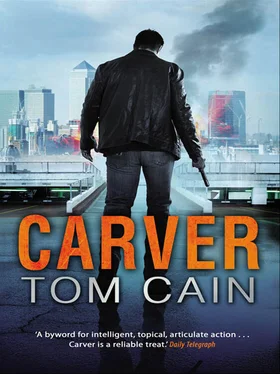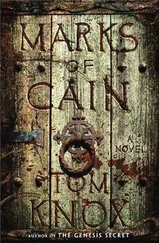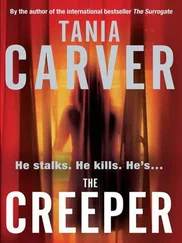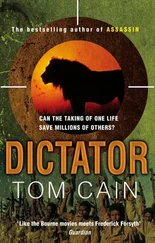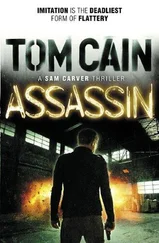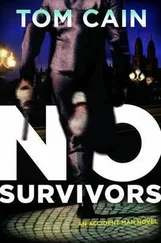Tom Cain - Carver
Здесь есть возможность читать онлайн «Tom Cain - Carver» весь текст электронной книги совершенно бесплатно (целиком полную версию без сокращений). В некоторых случаях можно слушать аудио, скачать через торрент в формате fb2 и присутствует краткое содержание. Жанр: Триллер, на английском языке. Описание произведения, (предисловие) а так же отзывы посетителей доступны на портале библиотеки ЛибКат.
- Название:Carver
- Автор:
- Жанр:
- Год:неизвестен
- ISBN:нет данных
- Рейтинг книги:4 / 5. Голосов: 1
-
Избранное:Добавить в избранное
- Отзывы:
-
Ваша оценка:
- 80
- 1
- 2
- 3
- 4
- 5
Carver: краткое содержание, описание и аннотация
Предлагаем к чтению аннотацию, описание, краткое содержание или предисловие (зависит от того, что написал сам автор книги «Carver»). Если вы не нашли необходимую информацию о книге — напишите в комментариях, мы постараемся отыскать её.
Carver — читать онлайн бесплатно полную книгу (весь текст) целиком
Ниже представлен текст книги, разбитый по страницам. Система сохранения места последней прочитанной страницы, позволяет с удобством читать онлайн бесплатно книгу «Carver», без необходимости каждый раз заново искать на чём Вы остановились. Поставьте закладку, и сможете в любой момент перейти на страницу, на которой закончили чтение.
Интервал:
Закладка:
Tom Cain
Carver
Prelude
East Hampton, New York: 5 June 2007
Malachi Zorn walked out of his house on Lily Pond Road and strolled across the grass to the path that led down to the beach. He was a man of medium height and slim build with tousled, dirty-blond hair, the year-round tan of a lifelong sportsman and a three-day growth of stubble that glowed golden in the bright early-summer sunshine. He wore an old Brooks Brothers button-down shirt whose pale-blue fabric had faded almost to white in places, and was frayed around the top of the collar. It hung loosely over a pair of khaki cargo shorts. His feet were bare.
He stopped for a moment and looked with disgust at the edifice rising on the plot next to his own. A hedge-fund manager had torn down the elegant, eighty-year-old house that had once stood there, and was now building a vast, white temple to tastelessness and excess. The new building dwarfed Zorn’s own traditional beach cottage, built in 1896 by a pupil of Stanford White, with its gabled roof, shingled walls and cosy veranda looking out towards the sea. His neighbour’s monstrosity summed up everything Zorn most despised about the amoral, self-enriching vulgarians who had turned Wall Street into a gigantic machine for extracting money from everyday Americans and pocketing the profit for themselves.
Fighting hard to contain the simmering rage that now threatened to ruin his day and, more importantly, distort his thinking, Zorn got moving again, relishing the warmth of the sand beneath his feet as he strolled to the water’s edge and let the incoming waves ripple and eddy around his ankles. He stood for a while, looking out to sea, hardly taking in the view but using it as a backdrop to the inner workings of his mind. Finally, he gave a single decisive nod of his head, turned on his heels and walked back up to his property.
Five minutes later, having made a cup of strong, black coffee and picked a couple of home-baked cookies from a large glass jar, Zorn was back at his personal workstation. Racked in front of him were eight flat-panel screens, arranged in two rows of four. They showed a constant stream of real-time market data and global TV and internet news coverage. A yellow legal pad lay on his desk, next to an old Harvard University coffee cup filled with freshly sharpened HH pencils. Zorn picked up a Bluetooth telephone earpiece and put it on. He looked at the only other item on his desk: a twenty-year-old picture of his parents. ‘This one’s for you,’ he murmured, and punched a speed-dial number.
When the call was answered there were no hellos or small talk, just a simple instruction. ‘I want to make a short call on Lehman’s,’ Zorn said. ‘Start with a hundred in three-month options. Be ready to write a lot more.’
‘You sure, Mal?’ asked the voice on the other end of the line, with the carefully modulated tone of surprise that a broker reserves for a client about to embark on an insane course of action. ‘Lehman’s is trading at almost eighty, and it’s only moving up. You’ve got a hundred million dollars says it’s gonna go the other way?’
‘Yes.’
‘OK. Well, it’s your money and you’ve always been right before, but…’
‘But nothing. Write the calls. And something else: what’s the premium on Lehman’s credit default swaps at the moment?’
‘Less than a basis point, couple tenths, maybe… but why do you want to know? You wanna bet that a one-hundred-and-fifty-year-old bank
…’
‘Hundred-and-fifty-seven-year-old, to be precise.’
‘Whatever… you’re saying that this great institution, the fourth biggest bank on the Street, is about to collapse?’
‘That’s right. At some point over the next year or two, that’s exactly what I’m saying. Buy ten billion bucks of Lehman’s CDSs. If people want to sell you more, buy it. Don’t stop.’
‘You’re risking millions, you know that?’
‘I’m risking a couple of tenths of one per cent of ten billion. That’s two mill a year downside, against ten billion up. That’s not a bad deal. So make it.’
‘You got it…’
‘And my name is nowhere near this. Nowhere near it at all.’
The Penthouse Executive Club, 45th St, New York City: 18 September 2008
‘How did you do it, Mal? I mean, you told me Lehman’s would crash and burn. I thought you were totally fuckin’ nuts. And then it goes and does exactly what you said it would. So how come you were right and every other son of a bitch in this business was wrong?’
Three days had passed since Lehman Brothers Bank filed for Chapter 11 bankruptcy, its share price evaporating — from a high of eighty-two dollars — to just three cents in a little over a year. After a weekend of desperate negotiations involving the heads of all the major Wall Street banks, US Treasury Secretary Hank Paulson, UK Chancellor Alistair Darling and senior executives from Bank of America (BoA) and Barclays, both of which had shown interest in buying the stricken bank, the Chief Executive Officer of Lehman’s, Richard Fuld, and his board had been forced to admit defeat. Fuld’s reputation as one of the masters of the financial universe now lay in tatters, just like the institution for which he had been responsible. He was pleading poverty, too, but his critics weren’t convinced. They pointed to the estimated half a billion dollars Fuld had received from Lehman’s between 2000 and 2007, none of which he was asked to return.
But by betting against Lehman Brothers Malachi Zorn had done even better. He had walked away with a little over $10.7 billion.
Now he looked around the table at the Penthouse Executive Club, which he was currently sharing with his broker, Donny Trimble, two of Trimble’s hottest dealers, and the three strippers they had showered with fifty-dollar bills and the promise of unlimited Cristal.
‘Because Wall Street is filled with guys like you,’ Zorn thought to himself, in answer to Trimble’s question. He was not in any way a prude, but he neither liked nor needed the business of paying for female company. Still, the club’s steaks were among the best in the city, and he did not want to deny his brokers the chance to celebrate a coup that had made them all millions, too. So he had come along for the ride and done his best to be civil.
‘You know, Don, what I find unbelievable isn’t the fact that I could see the whole damn system was bust,’ Zorn said. ‘It’s that so many other people couldn’t. I mean, three years ago the FBI was reporting that mortgage-related frauds had gone up by a factor of five. Record numbers of people were falling behind on their mortgage payments or flat-out defaulting, and there were just two things keeping the whole thing going. The first was all the suckers who thought that their house price could only go up. And the second was all the lenders who gave money to anyone, absolutely anyone, who asked for it. And even if you didn’t ask, they shoved it down your throat anyway. I mean, did you ever hear of an interest-only negative-amortizing adjustable-rate subprime mortgage?’
‘Uh, no, can’t say I did,’ said Trimble, who was evidently less interested in obscure forms of mortgage than in his companion’s fine young breasts.
‘Well, I’ll tell you then, Don. It was a mortgage that didn’t require the borrower to repay any of the capital, and if they fell behind with their payments, that was OK because the value of any missed payments just got added on to the mortgage debt. So some poor dumb bastard who probably didn’t have a job, let alone enough income to buy a home, just kept getting deeper and deeper in the hole till he said, “The hell with this,” and walked right away from the property, the mortgage, the whole damn shebang. And all he left behind was a pile of debt secured on a worthless property.’
Читать дальшеИнтервал:
Закладка:
Похожие книги на «Carver»
Представляем Вашему вниманию похожие книги на «Carver» списком для выбора. Мы отобрали схожую по названию и смыслу литературу в надежде предоставить читателям больше вариантов отыскать новые, интересные, ещё непрочитанные произведения.
Обсуждение, отзывы о книге «Carver» и просто собственные мнения читателей. Оставьте ваши комментарии, напишите, что Вы думаете о произведении, его смысле или главных героях. Укажите что конкретно понравилось, а что нет, и почему Вы так считаете.
